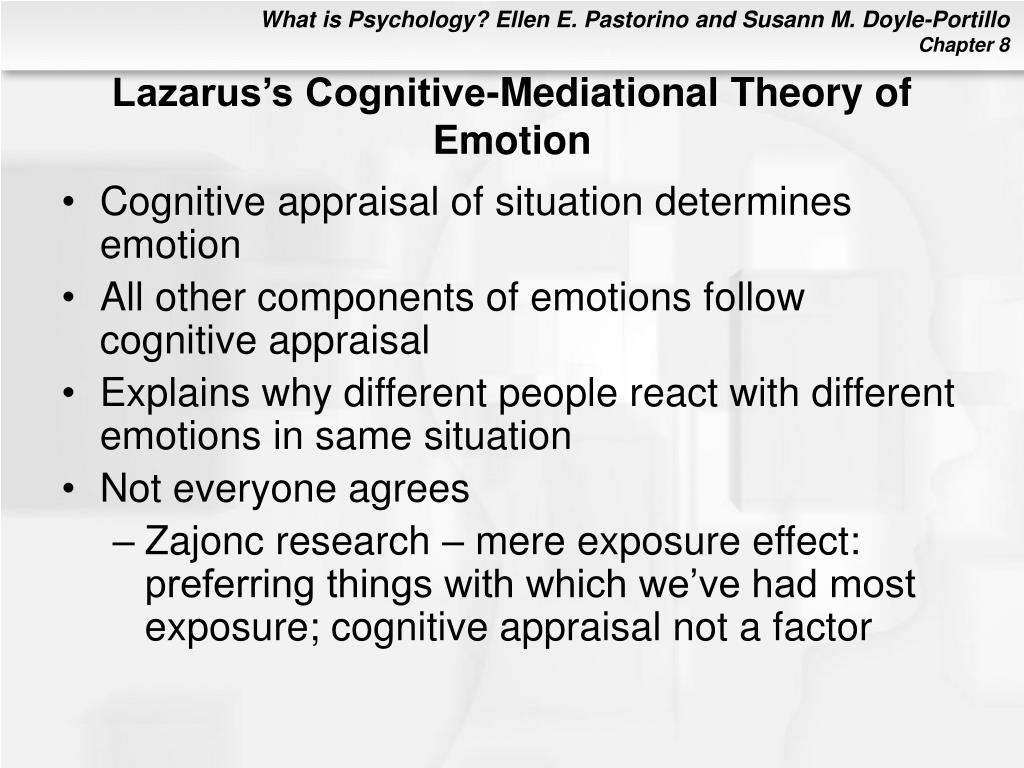

People who function well strive against odds because they hold on to hope.'' ''As you become depressed, you become aware of your defeats and start to feel hopeless. ''Mildly depressed people are very realistic about themselves, too realistic,'' Dr. The other is to try to reduce the anxiety caused by the problem. One is to try to deal with the problem directly.

Folkman argued that when problems arise, there are two ways of coping. He was perhaps best known for his work on coping, gaining attention for studies that showed that patients who engaged in denial about the seriousness of their situation did better than those who were more ''realistic.'' He also found that stress often had less to do with a person's actual situation than with how the person perceived the strength of his own resources.ĭr. Lazarus liked to take on topics like hope and gratitude. Lazarus of a 1984 book, ''Stress, Appraisal and Coping.''ĭr. ''He was very opposed to reductionist approaches to understanding human behavior,'' said Dr. Lazarus had disliked simple explanations. Susan Folkman of the University of California at San Francisco, said Dr.

I would reverse his argument completely by suggesting that knowledge of the brain is not necessary for an adequate theory of the mind and, ironically, in light of his position, that a knowledge of brain function cannot be obtained without a sound theory of mind and behavior.''Ī collaborator, Dr. ''He remains as dedicated as ever to the view that the study of behavior and mind is handicapped by the absence of knowledge about the brain. Of a disagreement with another researcher, he once wrote: His views put him at odds not only with behaviorism but also with a movement that began toward the end of his career: attempts to explain all human behavior by looking at the structure of the brain. Lazarus was an unabashed promoter of the importance of emotion, especially what he described as the marriage between emotion and thought.


 0 kommentar(er)
0 kommentar(er)
